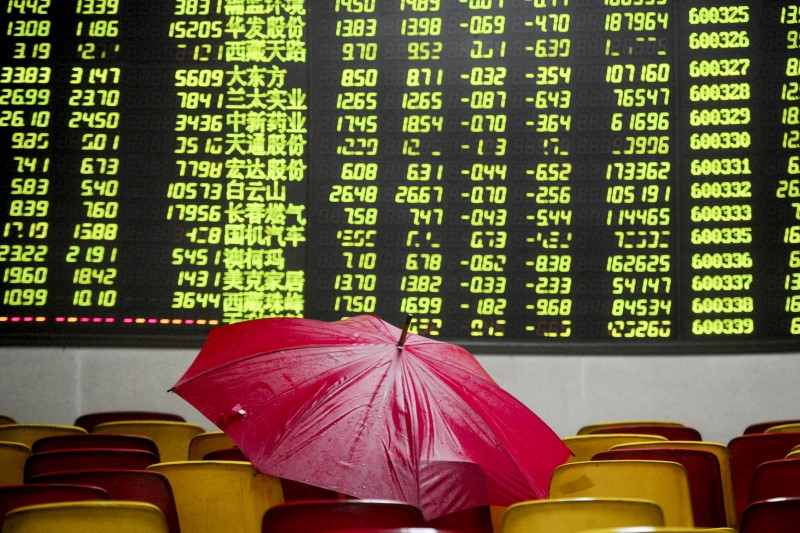(Bloomberg) -- After the worst weekly drop for China’s stock benchmark in four months, traders are now asking whether the once sizzling rally is over.
The CSI 300 Index capped a 4.4% loss this week, after surging 7.6% the week before. That’s the fastest reversal since the yuan devaluation in August 2015. The plunge came after the government adopted a series of measures to slow the pace of gains in what had suddenly become the world’s hottest equity market.
Retail investors, who bore the brunt of the losses when a stock bubble burst five years ago, are again questioning the merits of stock investing.
“This week’s slump was a shock, I didn’t even have time to think before everything was suddenly plunging,” said Wang Yao, a 36 year-old information system auditor based in Wuhan who lost “a lot of money” in 2015. “A long-term bull market is looking very unlikely.”
Such a reaction may be welcomed by officials after investors took on the most margin loans in five years to chase gains.
“The so-called ‘fast bull’ is definitely over,” said Shen Zhengyang, Shanghai-based strategist at Northeast Securities Co., who thinks most stocks in China now look expensive. “Leverage was the key reason behind this rally. The regulators do not want rapid gains and they are conducting measures to cool sentiment.”
A slow pace of gains would lower the risk of another destabilizing bubble. Rising share prices could boost consumer spending as well as make it easier for companies to raise funds and pay off debt.
Dai Ming, a fund manager at Hengsheng Asset Management Co. pointed to more sustainable sources of support for the rally such as mutual fund issuances and foreign inflows. China’s equity mutual fund issuance is on track for the largest full-year amount since 2015’s record, while net foreign inflows into mainland stocks via trading links in the first half of this year were the second-highest on record.
“I feel quite relaxed about the drop,” he said. “I don’t think the state media warnings can easily change this cycle.”
